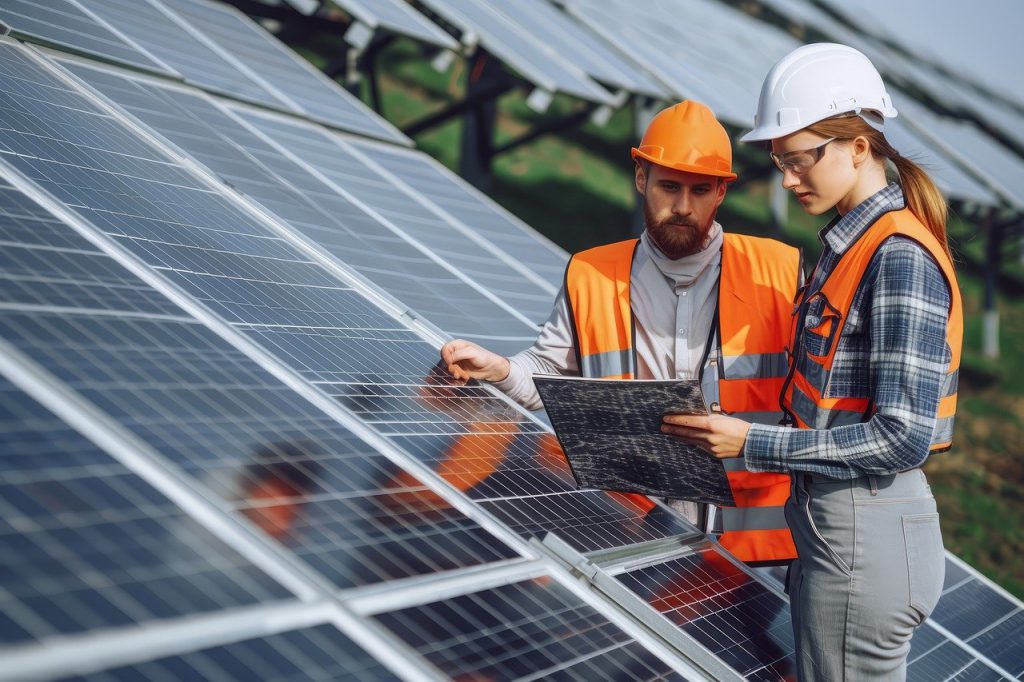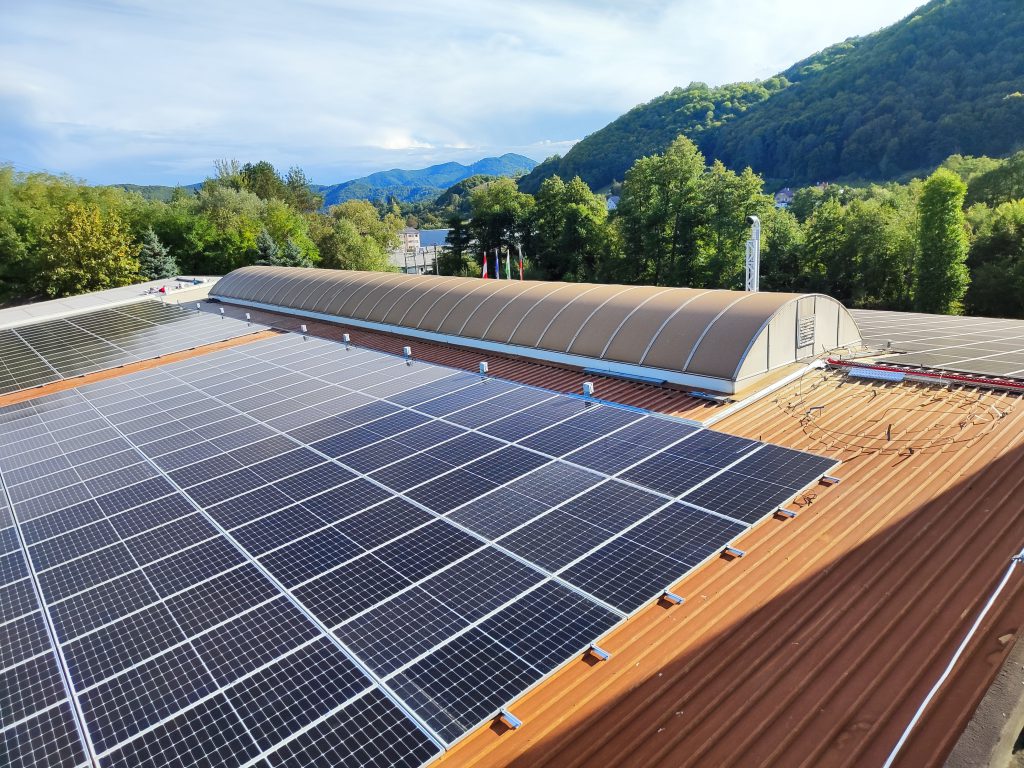
Blog
Blog
Home /
Blog
Introduction to Photovoltaics: Everything You Need to Know
- Romana Beňová
- 19.5.2024

What is photovoltaics?
Photovoltaics is a technology that allows you to convert sunlight directly into electricity. This process takes place with the help of photovoltaic cells, which are the basic building block of photovoltaic panels. Photovoltaic cells are made of semiconductor materials, most commonly silicon, that absorb sunlight and generate an electric current.
What is photovoltaics?
The operation of the photovoltaic system is based on the photoelectric phenomenon. When sunlight hits a photovoltaic cell, photons (particles of light) release electrons from the atoms of the semiconductor. This movement of electrons creates an electric current that we can use to power a home or business.
The photovoltaic system consists of several main components:
- Photovoltaic panels: An array of photovoltaic cells that capture sunlight and convert it into electricity.
- Inverter: A device that converts the direct current (DC) produced by the panels into the alternating current (AC) commonly used in homes.
- Batteries (optional): Accumulators that store excess energy for later use, increasing independence from the distribution network.
- Assembly system: A structure that holds the panels on the roof or on the ground.
- Regulators and protective elements: Devices that ensure the safe and efficient operation of the system.

Types of photovoltaic systems
There are several types of photovoltaic systems that differ according to their use and technology:
- On-grid systems: They are connected to the distribution network. Surplus energy produced by the system is supplied to the network and in the event of a lack of energy, it is also taken from there. This type of system is suitable for areas with a reliable distribution network.
- Off-grid systems: They work independently of the distribution network and are ideal for remote locations without access to the public network. In these systems, energy is stored in batteries, which allows it to be used even at night or on cloudy days.
- Hybrid systems: They combine the advantages of on-grid and off-grid systems. They are connected to the distribution network, but also have batteries to store energy. These systems provide greater flexibility and independence.
Advantages of photovoltaics
Photovoltaics brings many advantages:
- Ecological: Using solar energy helps reduce greenhouse gas emissions and protect the environment.
- Energy savings: Installing a photovoltaic system can significantly reduce your electricity costs.
- Energy independence: With photovoltaics, you can be less dependent on the distribution network and avoid power outages.
- Long service life and low maintenance: Photovoltaic panels have a long life (25-30 years) and require minimal maintenance.
Photovoltaics is one of the most efficient ways to use renewable energy and contribute to a sustainable future. If you are interested in installing a photovoltaic system
or you need more information, do not hesitate to contact us. We're here to help you get the most out of solar energy!
Stay in touch
Last posts
About us
Welcome to BBC System s.r.o. We offer reliable electrical installations and modern technological solutions for our clients.
Contact
- Kamenárska 186, Hliník nad Hronom, 96601
- +421 948 151 151
- bbcsystem@bbcsystem.eu
- Mon-Fri: 7:00 a.m. - 4:00 p.m., Sat: 8:00 a.m. - 11:00 a.m.
Are you interested in a solution?
Call us: +421 948 151 151
We are available to answer your questions during business hours. We are ready to help you.

Copyright © 2024. All rights reserved.


